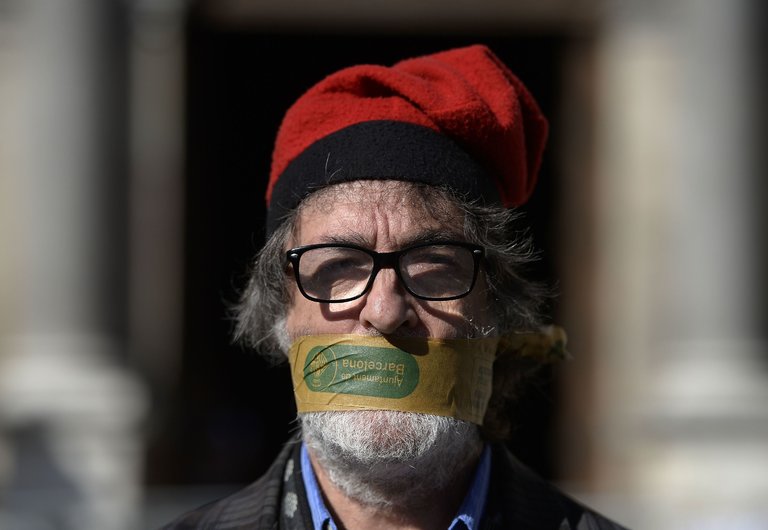03.11.2017 - 07:06
By THE EDITORIAL BOARD The New York Times
The Catalonia crisis finally reached the crunch that many had dreaded. Less than an hour after the Catalan regional parliament voted to declare independence from Spain last week, the Senate in Madrid voted to allow the Spanish government to take control of Catalonia. On Monday Madrid courts charged at least 20 separatist leaders with rebellion and sedition.
For the moment, Spain’s prime minister, Mariano Rajoy, armed with the country’s Constitution, appeared to have taken the upper hand. His call for new regional elections in less than two months, on Dec. 21, confronted secessionists with a dilemma: They had to accept Madrid’s temporary control and quickly start campaigning, or be left out of an election in which they could potentially improve their strength for future negotiations. Major pro-independence parties seemed to favor participating in the election, as did the deposed Catalan president, Carles Puigdemont.
The level of Catalan support for secession was never certain, since only 41.5 percent of the regional electorate voted in the chaotic referendum Mr. Puigdemont held on Oct. 1 in defiance of Madrid. Major trade unions and many civil servants appear likely to accept Madrid’s temporary control — the former spooked by the prospect of an economic turndown over a protracted crisis, the latter concerned about losing Madrid-paid jobs.
Mr. Puigdemont himself, stripped of office and facing arrest, decamped for Brussels, insisting he was seeking not asylum but unspecified “guarantees” in order to return. The European Union has shown no support for Catalan independence.
Yet Mr. Rajoy’s unyielding stance could backfire if the standoff continues. The violent tactics of the Spanish police in trying to break up the referendum left bitter feelings in Catalonia, and more strong-arm tactics, should Catalans defy Madrid, could further shift sympathies — perhaps outside Spain as well. Donald Tusk, the president of the European Council, tweeted that the European Union regarded Spain as its “only interlocutor,” but added: “I hope the Spanish government favors force of argument, not argument of force.”
If Catalan parties are in fact prepared to participate in a new regional election, Mr. Rajoy should display magnanimity by apologizing for the behavior of the police on Oct. 1 and pledging greater respect for Catalan national yearnings. The crisis has done great damage to Spain and Catalonia, and the sooner the mending can start, the better.

